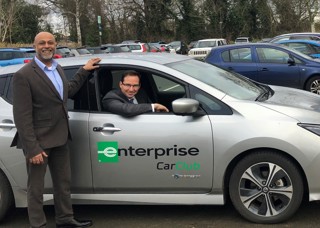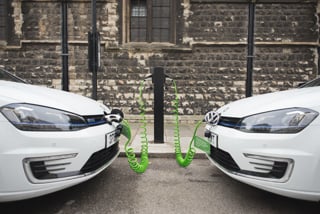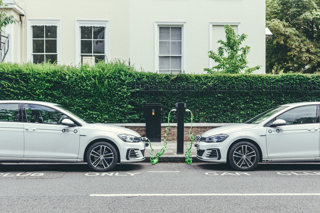London Councils – the umbrella body for local government in the capital – is launching a new online resource to support borough collaboration on car club policies.
It says it is determined to ensure car clubs contribute to the capital’s sustainable transport strategy.
London Councils will host the resource on its website as a space for borough officers, car club operators and other users to access relevant sources of information.
It is the latest stage of London Councils’ development of a pan-London approach to car clubs. There are currently six car clubs in London, estimated to have more than 400,000 members across the capital.
Boroughs believe car clubs have an important role to play in reducing private car ownership, but they must fit into London’s broader strategy of encouraging behaviour change and promoting more active and sustainable transport.
Boroughs are responsible for 95% of London’s roads and are committed to promoting cleaner, greener, and more active transport modes.
The car club fleet in London emits 28% less CO2 than the average UK vehicle and 100% of car club cars are already compliant with the capital’s Ultra Low Emission Zone (ULEZ).
Cllr Julian Bell, chairman of London Councils’ transport and environment committee, said: “Car dependency in the capital means more congestion, more air pollution, more carbon emissions, and more damage to Londoners’ health.
“Boroughs are determined to make people think twice before using their cars for non-essential journeys and to encourage increased use of active and sustainable transport.
“Car clubs can play an important role in changing behaviour. We’re keen to support car clubs where they help to reduce the total number of vehicles on the road and facilitate use of less-polluting vehicles.
“However, car clubs don’t work everywhere and need to fit into our overall strategy for greener travel options such as walking, cycling, and public transport.
“Through improving data sharing with each other and closer collaboration, including with TfL and the car club sector, boroughs are developing a coordinated approach that will help achieve this.”
Christina Calderato, Transport for London’s head of transport strategy and planning, added: “As London continues to grow, we need to make sure we’re using our street space as efficiently as possible, encouraging walking, cycling and public transport and reducing car use.
“Car clubs can provide an alternative to car ownership for occasional and essential car trips. We therefore support car clubs in the capital, which can have benefits when paired with other measures to reduce car dependency.”
London Councils represents London’s 32 boroughs and the City of London. It is a cross-party organisation that works on behalf of all its member authorities regardless of political persuasion.
Welcoming the initiative, Gerry Keaney, chief executive of the British Vehicle Rental and Leasing Association (BVRLA), said: “Car clubs can play a massive role in helping London tackle its air quality and congestion challenges, but operators have faced a real challenge in navigating the myriad of different requirements put forward by the capital’s 32 boroughs.
“We are delighted that London Councils has seized the initiative by dedicating more resources to the sector and driving a more coordinated approach.
"The BVRLA and its members are determined to work with policymakers across London to develop a car club strategy that delivers a long-term, viable business model and more sustainable travel outcomes.”
Also welcoming the London Councils plan, Patrick Cresswell, managing director of Ubeeqo UK, added: “We certainly welcome any additional resources that will help highlight the benefits of car clubs to tackle the air quality, CO2, congestion and parking pressures facing the capital.
"Anything to simplify the process of local authorities engaging with car clubs like Ubeeqo will undoubtedly serve residents, businesses and communities across London.”





















Login to comment
Comments
No comments have been made yet.